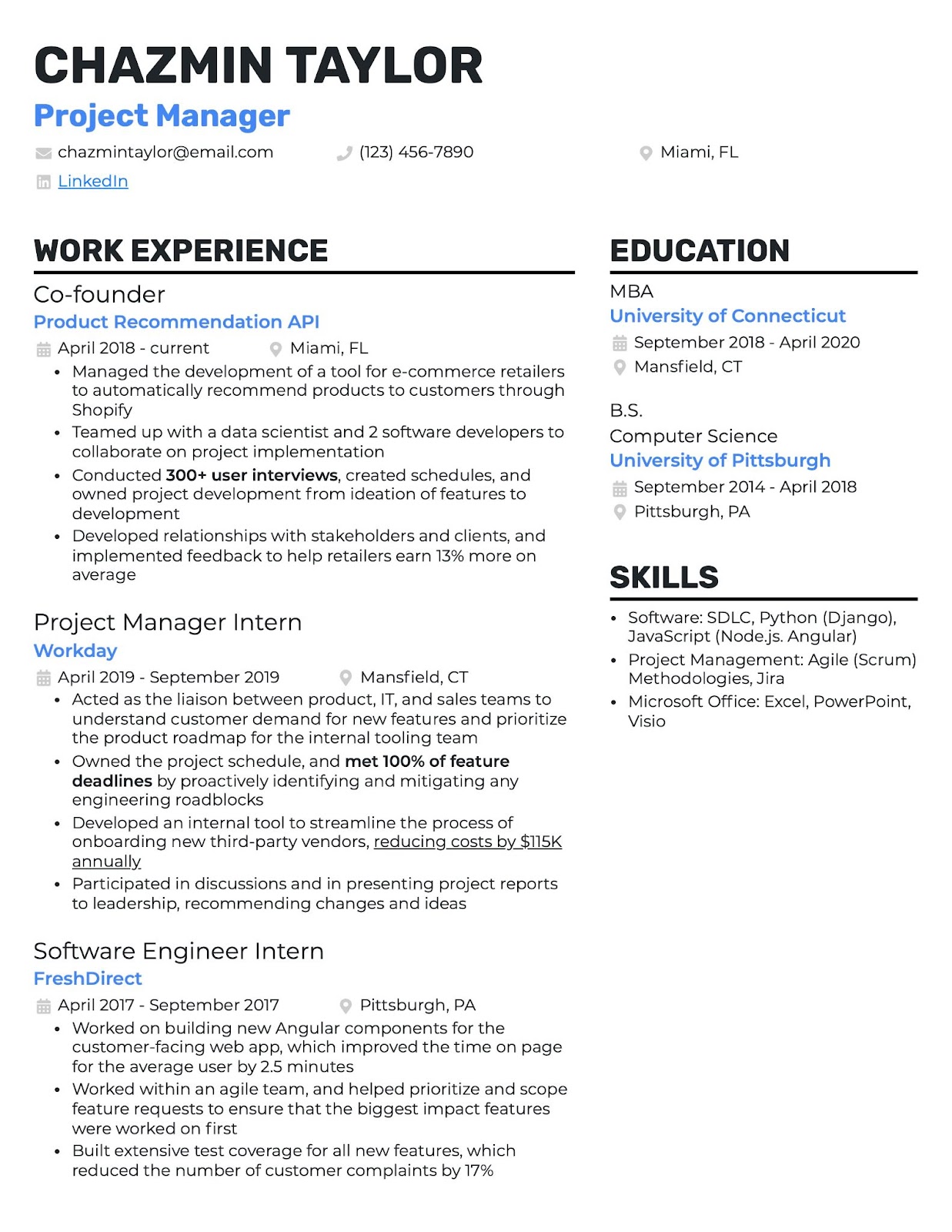
Breaking into project management
Are you considering a career in project management? It’s an exciting and rewarding career path that puts you at the center of solving real-world challenges, from supporting digital transformation initiatives to improving patient care and community services. Project management is not only fulfilling but also increasingly sought after. According to PMI’s Global Project Management Talent Gap report (2025), there are nearly 40 million project management professionals worldwide today, yet demand is projected to increase by as much as 64% by 2035, creating a potential shortfall of up to 29.8 million qualified professionals.
For those just starting out in the project management field, there are specific steps to take to qualify for an entry-level project manager position. With an undergraduate degree, completion of relevant training programs, and success in earning an entry-level certification like the Certified Associate in Project Management (CAPM®) or Agile credential, you’ll be well-prepared to pursue an entry-level role. This foundational experience will enable you to build essential skills in team management and project leadership.
In this article, we’ll explore how to secure your first entry-level project manager position—from developing critical skills and gaining hands-on experience to refining your resume and offering tips for acing common interview questions.
What are entry-level project management roles?
For those new to project management, many entry-level roles typically require minimal prior experience but offer competitive starting salaries. These positions often directly support project managers, enabling you to develop core project management skills like stakeholder communication, task coordination, and risk management. These roles often serve as springboards into Associate Project Manager, Project Manager, or specialized project-focused positions.
Associate project manager
Assistant or associate project managers work closely with senior project managers to keep projects on track. They help plan and execute projects, monitor scope, and facilitate communication between stakeholders and teams.
- Average annual salary in the U.S.: $75,676/year
- Main tasks and responsibilities include:
- Communicating with cross-functional teams and stakeholders
- Supporting project planning and execution
- Assisting in scope and schedule management
- Monitoring risks and reporting on project progress
Project administrator
Reporting to project managers, project administrators focus on the administrative backbone of a project, handling scheduling, documentation, and logistics to ensure smooth team operations. Their work allows more senior project managers to focus on the big picture.
- Average annual salary in the U.S.: $61,848/year
- Main tasks and responsibilities include:
- Scheduling meetings and preparing agendas and minutes
- Supporting communication across teams and stakeholders
- Assisting with resource allocation and basic budget tracking
- Maintaining project documentation and filing systems
Project coordinator
Project coordinators are often the first step into project management. They support project managers by organizing schedules, tracking progress, and ensuring all documentation is up to date. This role provides exposure to every stage of the project lifecycle.
- Average annual salary in the U.S.: $56,249
- Main tasks and responsibilities include:
- Coordinating project schedules and tasks
- Supporting communication between teams and stakeholders
- Tracking deliverables and deadlines
- Preparing documentation and status reports
Our Project Management Certificate Course gives learners the skill set needed for these entry-level project management roles. In just 10 weeks, you’ll gain real-world experience through mentor-led sessions and flexible, hands-on learning to create a Project Management Playbook you can present to future employers.
Essential skills for entry-level project managers
Breaking into project management means mastering both soft skills that help you lead and influence teams, and hard skills that allow you to manage complex workflows effectively. Employers expect candidates to demonstrate a balance of both.
Soft skills
- Leadership and influence: Even in entry-level roles, you’ll be expected to guide and motivate team members. Strong leadership means keeping the team focused and aligned while influencing people across departments. When challenges or conflicts arise, your ability to mediate and keep projects moving forward is critical.
- Time management and prioritization: Modern project managers rely on digital tools to track tasks, but your responsibility is ensuring the team is focused on the right priorities. This includes helping the team balance deadlines, adapt to changes, and maintain steady progress without burnout.
- Communication: As a vital point of contact for your team, clients, stakeholders, and others, you’ll translate complex project details into clear, actionable updates. Strong communication also includes active listening, presenting updates concisely, and tailoring your message for different audiences.
- Planning and adaptability: Planning now goes beyond setting timelines. It also involves building flexible strategies that account for uncertainty. You’ll define project goals, map dependencies, anticipate risks, and adjust course quickly when obstacles arise.. Through the planning process, you’ll start developing the skills needed to anticipate obstacles and adjust strategies to ensure projects stay on course.
Business skills
- Business acumen and strategic alignment: Employers expect project managers to understand how projects connect to broader business goals. You’ll need to apply critical thinking to align deliverables with organizational strategy, measure impact, and communicate the “why” behind the project.
- Budgeting and cost management: Entry-level project managers often assist with project budgets, tracking costs, and negotiating with vendors. These experiences help you develop financial discipline and the ability to make recommendations that balance efficiency with quality.
- Resource management: As an entry-level project manager, you’ll often be in charge of resource allocation and management. To effectively track and manage team performance, you’ll use resource allocation strategies—using Gantt charts or other visual trackers—to manage how resources are allocated over a project timeline or task list.
Technical skills
- Project management methodologies: Knowledge of Agile, Scrum, Kanban, and Waterfall is critical. Today’s PMs are expected to flex between these approaches—or combine them in hybrid models—based on the project and organization.
- Project management tools and AI software: Tools like Microsoft Project, Jira, Smartsheet, Trello, and Asana are industry standards. You should also be comfortable with cloud-based platforms like Monday.com and collaboration hubs like Slack or Microsoft Teams.
- AI & data analysis: AI is reshaping project workflows. Entry-level PMs are now expected to use AI-powered tools for scheduling, resource forecasting, and reporting. Basic data analysis and visualization skills (e.g., in Tableau, Power BI, or Google Data Studio) help you provide actionable insights and strengthen decision-making.
Building experience and credentials
Breaking into project management is about combining real-world experience with recognized credentials that prove your skills. While entry-level positions don’t always require years of prior experience, employers do want to see initiative and practical application of project management tools and methods.
- Mentorship: Seek out a project manager that you admire and ask to observe their project meetings or shadow their work. This gives you a front-row view of how experienced professionals manage schedules, stakeholders, and challenges.
- Cross-functional projects: If you’re already working, volunteer to coordinate or support projects outside your day-to-day role—such as product launches, system updates, or internal process improvements. This allows you to demonstrate adaptability and build transferable skills without leaving your current job.
- Internships: Internships remain one of the most direct paths into project management. Consider exploring industries like IT, construction, consulting, or health—sectors that continue to see strong project management demand.
- Volunteering: Nonprofits, startups, and community organizations are often looking for volunteers or part-time help with event planning, digital rollouts, or process improvements. These opportunities build your resume while showcasing your ability to deliver results with limited resources.
- Courses and certifications:
- Certified Associate in Project Management (CAPM)®: Offered by PMI, this is the best entry-level certification for newcomers. It validates foundational project management knowledge and demonstrates your readiness to step into a project management role.
- Project Management Professional (PMP)®: PMI’s most recognized certification, the PMP® is often required for mid-level to senior project managers. It signals advanced expertise, but typically comes after several years of experience.
- Agile certifications: With many companies embracing Agile and hybrid methods, Agile credentials are in high demand:
- PMI-ACP® (Agile Certified Practitioner)
- Certified ScrumMaster (CSM®)
- Professional Scrum Master (PSM I)
Our Project Management Certificate Course features flexible, on-demand learning. In just 10 weeks, you’ll build and develop an effective project management plan using essential tools like Jira, Microsoft Project, and more. This mentor-led course prepares you for entry-level project management roles with hands-on learning opportunities—developing a Project Management Playbook that you can present to future employers.
Where to find entry-level project management jobs
In addition to volunteering and internships, there are several other strategies for finding entry-level project management positions. One approach is to explore your current employer’s job board for potential openings. Consider reaching out to internal contacts or emailing relevant departments to identify the hiring manager and arrange a formal or informal conversation about the role. If no entry-level project management roles are available within your current organization, other pathways can help you get started.
- LinkedIn / ZipRecruiter / PMI: Optimize your resume and profile using keywords in project management based on your ideal job description; link out to your portfolio, and upload your Project Management Playbook. From there, you’ll be ready to search for junior project manager roles.
- Networking: 85% of new jobs are filled through networking. So, how do you find a network? Outside of your social and family circles, there are a myriad of online project management forums, memberships, and local communities to join.
Creating a winning entry-level project management resume
As an entry-level candidate, it’s normal to have limited work experience—that’s expected! Resume Worded advises, “Highlight relevant coursework and certifications such as PMP, CAPM, or Agile methodologies that showcase your knowledge in project management principles and practices.” Make sure to spotlight any certifications and project management skills you have to demonstrate your experience in leadership and with project management tools.
Key Sections:
- Education
- Certifications
- Technical skills
- Soft skills
- Relevant Experience
Entry-level project management example:

Photo courtesy of BeamJobs
Create an ATS-friendly resume: Remember that many employers now use Applicant Tracking Software (ATS) to screen resumes before they reach HR or hiring managers. To ensure your resume makes it through the system, keep the format clean and straightforward. Resume experts advise avoiding tables or graphics, as these can disrupt the ATS. CV Compiler recommends, “Use a good balance of the keywords and phrases throughout your resume to show your fit for the role.”
We offer the Project Management Certificate Course, which provides personalized mentorship that will help advance your career. Throughout this 10-week program, you’ll not only learn project management basics, but you’ll also receive career coaching, group workshops, resume and cover letter tips, interview practice, and so much more from expert instructors and mentors.
Common interview questions for entry-level project managers
Take a look at these common interview questions and how to best prepare for and answer them.
Your path to success as an entry-level project manager
Starting a career as an entry-level project manager can feel daunting, but with determination, motivation, and the right blend of training, certifications, skills, connections, and hands-on experience, a career in project management can be incredibly fulfilling.
Accelerate your project management journey with the flexible, on-demand Project Management Certificate Course, in partnership with Ziplines Education. Our knowledgeable mentors and instructors provide personalized guidance, from resume and cover letter optimization to interview coaching and career development. Embark on a rewarding and dynamic career in the high-demand, innovative field of project management.




